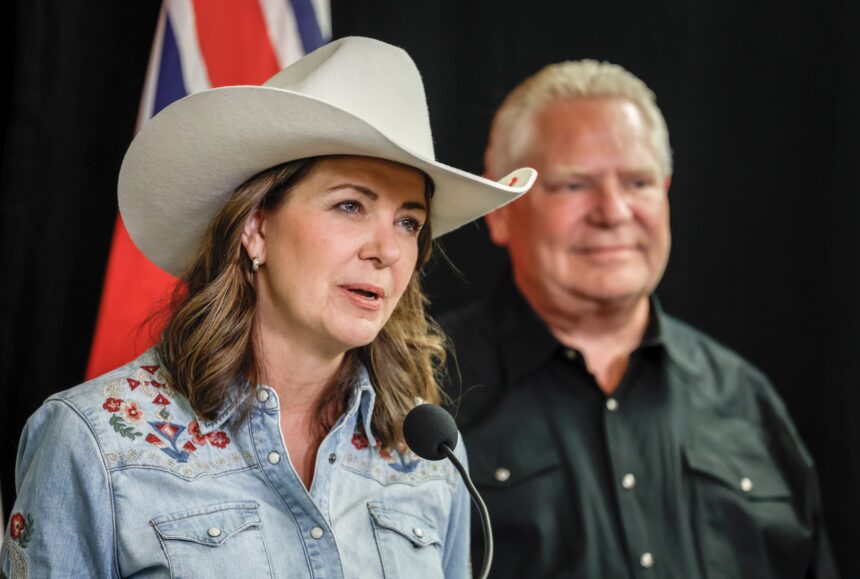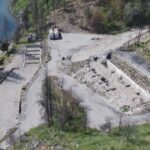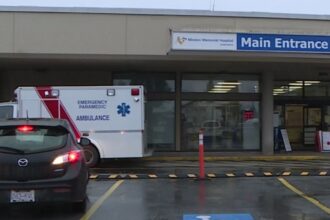In a pivotal shift for Canada’s energy landscape, Alberta launched its long-anticipated public consultations on nuclear energy development yesterday, drawing hundreds of participants to Edmonton’s Shaw Conference Centre. The province, long dependent on fossil fuels, is now exploring nuclear options as part of its controversial energy diversification strategy aimed at meeting both growing power demands and emissions reduction targets.
“This isn’t just about adding another energy source to our portfolio,” said Alberta Energy Minister Rebecca Phillips during the opening session. “It’s about responsibly positioning Alberta for a future where our energy security and economic prosperity aren’t tied exclusively to hydrocarbons.”
The consultation process, which will travel to six major centers across the province over the next three months, comes after the provincial government’s preliminary feasibility study suggested small modular reactors (SMRs) could potentially generate up to 20% of Alberta’s electricity by 2040. This represents a significant pivot for a province that has historically derived over 80% of its electricity from natural gas and coal.
Environmental groups and indigenous representatives were vocal at the inaugural session, raising concerns about nuclear waste management and potential impacts on treaty lands. Chief Robert Strongeagle of the Treaty 6 Nations emphasized that “any energy development must include indigenous voices from the beginning, not as an afterthought.”
According to CO24 News, the consultations have attracted attention from major nuclear industry players. Representatives from Ontario Power Generation and Bruce Power were present, highlighting their experiences operating Canada’s existing nuclear facilities safely for decades.
The economic dimensions of nuclear development featured prominently in discussions. A report from the Alberta Chamber of Commerce, released to coincide with the consultations, suggests that developing two SMR facilities could create approximately 6,800 jobs during construction and 400 permanent positions during operation, while generating $2.5 billion in economic activity.
“There’s a real opportunity to leverage Alberta’s existing energy workforce expertise,” noted University of Alberta energy economist Dr. Sarah Mendelsohn. “Many of the skills in our oil and gas sector are transferable to nuclear operations, potentially offering new career paths as traditional energy jobs evolve.”
The Canadian nuclear sector has been experiencing renewed interest nationally, with Ontario recently approving expansion at the Darlington Nuclear Generating Station and Saskatchewan conducting its own feasibility studies for SMR deployment.
Critics, however, point to significant hurdles. “The economics remain questionable,” said Jason Montgomery from the Alberta Energy Policy Institute. “Construction delays and cost overruns have plagued nuclear projects globally. Add to that the unresolved questions about waste storage, and Albertans deserve complete transparency about the risks.”
Public opinion remains divided. A recent poll commissioned by CO24 Politics found that 47% of Albertans support exploring nuclear options, while 38% oppose and 15% remain undecided. Support was notably higher among younger demographics and in regions currently dependent on coal power.
Federal Environment Minister Caroline Burke indicated that Ottawa is watching Alberta’s process closely. “Nuclear energy represents a complex intersection of provincial jurisdiction over electricity and federal oversight of nuclear safety,” she stated. “We’re committed to ensuring any development meets Canada’s stringent regulatory standards.”
The consultation website launched yesterday allows Albertans unable to attend in-person sessions to submit feedback online until October 15, after which the government plans to release its comprehensive nuclear strategy by early 2026.
As Alberta contemplates this significant energy transition, the fundamental question remains: can a province built on fossil fuels successfully pivot to embrace nuclear technology, and at what environmental, economic and social cost?

























